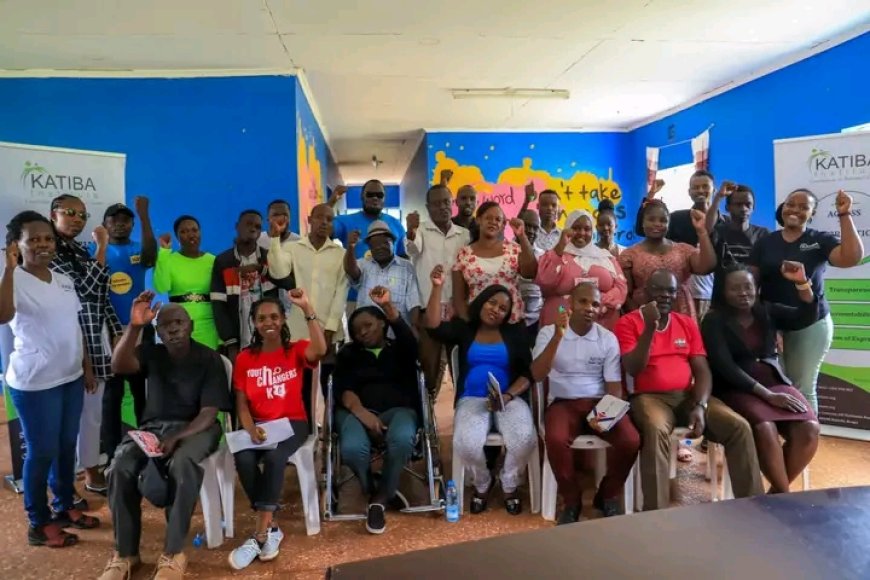Katiba Institute Launches Training Program on Access to Information in Western Kenya

By Mary Owano
The Katiba Institute has initiated a one-week training program aimed at educating the public on the Access to Information law and its significance for both duty bearers and citizens of the Republic of Kenya.
The program, being conducted in the Western region, seeks to enhance public understanding of their right to access information and how it can be used to uphold other constitutional rights.
The training involves various groups, including community members, community-based organizations, and journalists from across the region.
Speaking on the third day of the meeting in Kakamega County, Patricia Joseph, the Program Manager at Katiba Institute and an advocate at the High Court of Kenya with over ten years of post-admission experience, emphasized the importance of the program.
She noted that many people are unaware of their right to access information and how it can be instrumental in reclaiming other constitutional rights.
“The sensitization of the public about the right to access information is crucial as it guides citizens on how to defend themselves when their rights are breached,” said Patricia.
However, she pointed out that accessing information remains a challenge, especially for differently-abled individuals, from both county and national governments.
“The public, including people living with disabilities, find it difficult to access information on critical matters such as financial budgets and accountability,” Patricia added.
She advocated for collaboration between the judicial system and the public in instances where citizens' rights have been violated, despite the delays often experienced in the judicial process.
According to Patricia, the judicial system provides avenues to ensure that rights are protected and offers remedies when rights are breached.
“It is always advisable for citizens to take their cases to court for justice to prevail, despite the delays experienced in the Kenyan judicial system. The courts provide a platform to safeguard citizens' rights and offer remedies when these rights are violated,” she reiterated.
Kevin Mabonge, the Communications Officer at Katiba Institute, highlighted that the training, which has already been conducted in Bungoma, Vihiga, and Kakamega, aims to help the public understand their right to access information. He stressed that public bodies hold information not for themselves but as custodians of the public good.
“Duty bearers working in county and national governments have a mandate to provide information to the public without being asked. The public should understand that obtaining this information is not a favor but a right, as stated in Article 35 of the Constitution of Kenya,” Mabonge said.
Henry Gichana, in charge of devolution at Katiba Institute, disclosed that the constitution grants citizens the right to participate in public consultations before the implementation of significant issues or laws. If they are not engaged, they have the right to seek legal recourse to halt such implementations.
“The public should understand that it is their constitutional right to participate in all public consultations before crucial laws or matters are implemented. If they are not involved, they can go to court and stop these implementations,” Gichana highlighted.
The training program by Katiba Institute is a significant step towards empowering citizens with the knowledge and tools necessary to exercise their right to access information and participate actively in governance processes.







